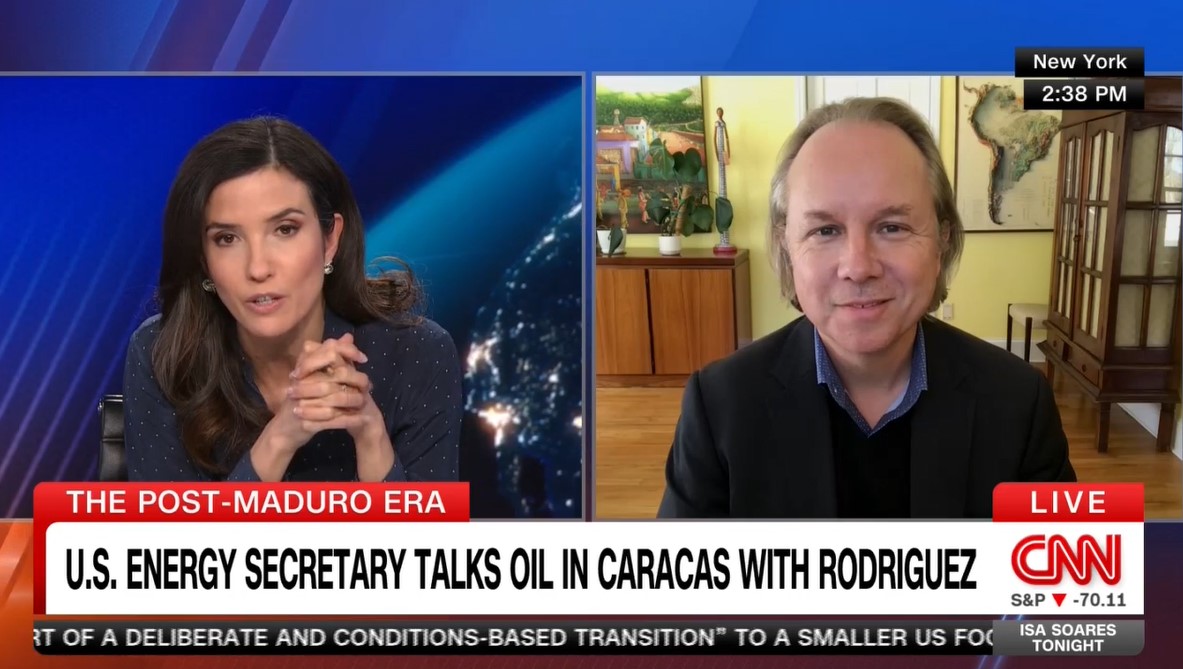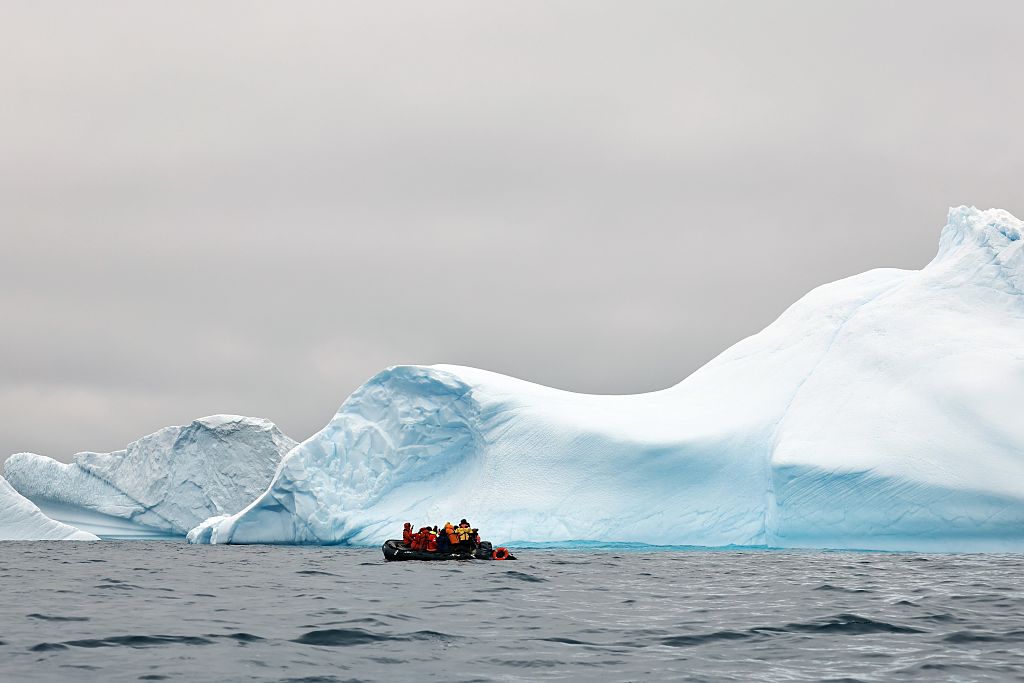Amb. Jeffrey Davidow on Expectations for the Summit of the Americas
Amb. Jeffrey Davidow on Expectations for the Summit of the Americas
In an exclusive interview, White House Advisor for the Summit of the Americas Jeffrey Davidow speaks about expectations for April's summit in Port of Spain. The Obama administration will seek to build on the hemisphere’s past decade of accomplishments through a “real focus on exchanging ideas, techniques, and best practices,” said Davidow.
In an exclusive interview, White House Advisor for the Summit of the Americas Jeffrey Davidow speaks with AS/COA Online’s Carin Zissis about expectations for the summit in Port of Spain on April 17 through 19. The Obama administration will seek to build on the hemisphere’s past decade of accomplishments through a “real focus on exchanging ideas, techniques, and best practices,” said Davidow. The ambassador offers insight into top issues on the agenda, from trade to energy to public safety. Davidow served as a U.S. ambassador to Mexico and to Venezuela. He also held the position of Assistant Secretary for Inter-American Affairs under the Clinton administration.
The ambassador joined AS/COA on March 31 for a discussion about the Summit of the Americas. Read a program summary about that panel.
AS/COA Online: The global economy will be the Summit of the Americas’ focal point. With the G20 members wrapping up their meeting, what kind of groundwork do you see has been laid in advance for the summit in Trinidad and Tobago?
Davidow: Clearly, the groundwork depends very heavily on what is done at the G20. I’ve just seen some press reports in the last few minutes indicating a very substantial increase for the IMF [International Monetary Fund]. I do believe that a significant amount of the new resources will find their way to this hemisphere. A lot of leading experts point to Eastern Europe and Latin America as the two areas that can best use new IMF resources.
Additionally, the IDB [Inter-American Development Bank] just had a meeting in Medellin, where [Treasury] Secretary [Timothy] Geithner talked about giving greater flexibility and more robust lending for the IDB in the region. The issue of a recapitalization is something to be decided and studied for the midterm. But in the immediate future, the IMF, the IDB, and other regional banks (such as the Andean Finance Corporation) can play an important role.
AS/COA Online: The summit will serve as President Barack Obama’s first introduction to the hemisphere and to more than 30 leaders. What are the top issues that the Obama administration hopes to address at the summit?
Davidow: There are several, but the basic issue is the fact that this administration is going with a message that the hemisphere has done well in terms of democracy and in terms of economic development over the past decade. We realize that there’s a great challenge because of the economic situation today. But we can build on what’s been accomplished. One way to make it more lasting is by extending the benefits of democracy and trade and greater integration to more people. This can be done through creating programs of social inclusion, including health and education, for a real focus on exchanging ideas, techniques, and best practices. It’s not necessarily a question of throwing more money at these problems, because that’s tough in times like these, but rather getting the very best ideas socialized and understood at all levels.
AS/COA Online: Is there a particular issue that you feel is in danger of getting overlooked at the summit?
Davidow: I think there are many that possibly won’t get the attention that they deserve. I really feel that one issue that must be discussed—but it’s a hard issue to discuss—is public safety, or what’s called human security. It’s easy when talking about that to focus just on some of the major issues such as narcotics trafficking or counterterrorism. I really do believe that the president wants to broaden that agenda and talk about other forms of crime that really afflict people throughout the Caribbean, Central America, Mexico, and elsewhere. The question of street gangs; unemployed youth; weak political, juridical, and police systems—these are the kinds of things that are not that easy to talk about because they are not that easy to fix. But I really hope that they don’t get overshadowed.
AS/COA Online: The president has been vocal about turning attention to green technology and renewable energy sources. Can you map out what you see in the future for hemispheric energy partnerships, both in terms of what can be accomplished at the summit and beyond?
Davidow: I think what will be accomplished at the summit is an offer on the part of the president, consistent with the summit’s own plan for an energy partnership, for discussions for energy security. The president will offer to work with the countries of the hemisphere on a flexible basis and will say, “Look, there are six or seven really important issues, whether it’s biofuels or renewables or clean coal. Let’s work together.”
Again, it is a question of creating networks and frameworks and exchanging technology and best practices. Of course, we have a tremendous amount of information in our own country with private universities and the Department of Energy laboratories. Other countries are very interested in doing great work as well: Brazil on biofuels, Chile on renewables, and countries like Barbados on solar energy. So I do think that what we are looking for is an exchange of information and setting up of flexible networks.
On the climate side, we have to look at energy as a subset of the climate change issue. We certainly want to work with countries of this hemisphere as we move towards the Copenhagen meeting at the end of the year and, hopefully, an international agreement on how we confront climate change.
AS/COA Online: Several hemispheric leaders, particularly Brazil’s President Luiz Inácio Lula da Silva, have been very outspoken against protectionism. What progress can the White House make at the summit in terms of certain particular trade agreements or trade in general in the hemisphere?
Davidow: I call your attention to the president’s trade document, which was issued about three weeks ago, in which he says that he is committed to open trading patterns and he is committed to avoiding protectionism. He believes that the Panama Free Trade agreement should be ratified as soon as possible and the Colombian Free Trade agreement should be ratified after certain benchmarks are met. So the president will go there with a strong trade message and a strong anti-protectionism message.
AS/COA Online: I wanted to draw from your experience as a former ambassador to Mexico. President Obama will visit Mexico on his way to the summit. What do you think his main goals will be there?
Davidow: I think he wants to have in-depth conversations with President [Felipe] Calderón and others about U.S.-Mexican relations. A principle focus right now is security and President Calderón’s very courageous fight against the narco-traffickers. I think the president will go down there and personally congratulate Calderón, but he will also see how cooperation between the two countries can be improved. Also, the president is very aware that our relationship with Mexico is multi-faceted and we have lots of things to talk to them about that go beyond the particular issue of security and the fight against narcotics.
AS/COA Online: What will some of those other top issues be?
Davidow: Obviously, the other big issue is always trade. I am sure the Mexicans will probably mention this dispute on trucking. Immigration, which I suspect that the Mexicans will bring up immigration and other issues and we have our concerns as well. So it will be a full agenda.








